

June 20 – 26: “Can you write from any location?”
 Can you write from any location? Does changing your setting, time or place, spur new ideas? This week, those are the questions we ask ITW Members J. M. LeDuc, Tim Baker, Mike Dellosso, Tom Breen, Mary Burton, Gordon Chaplin, Camille Minichino and John Farrow.
Can you write from any location? Does changing your setting, time or place, spur new ideas? This week, those are the questions we ask ITW Members J. M. LeDuc, Tim Baker, Mike Dellosso, Tom Breen, Mary Burton, Gordon Chaplin, Camille Minichino and John Farrow.
~~~~~
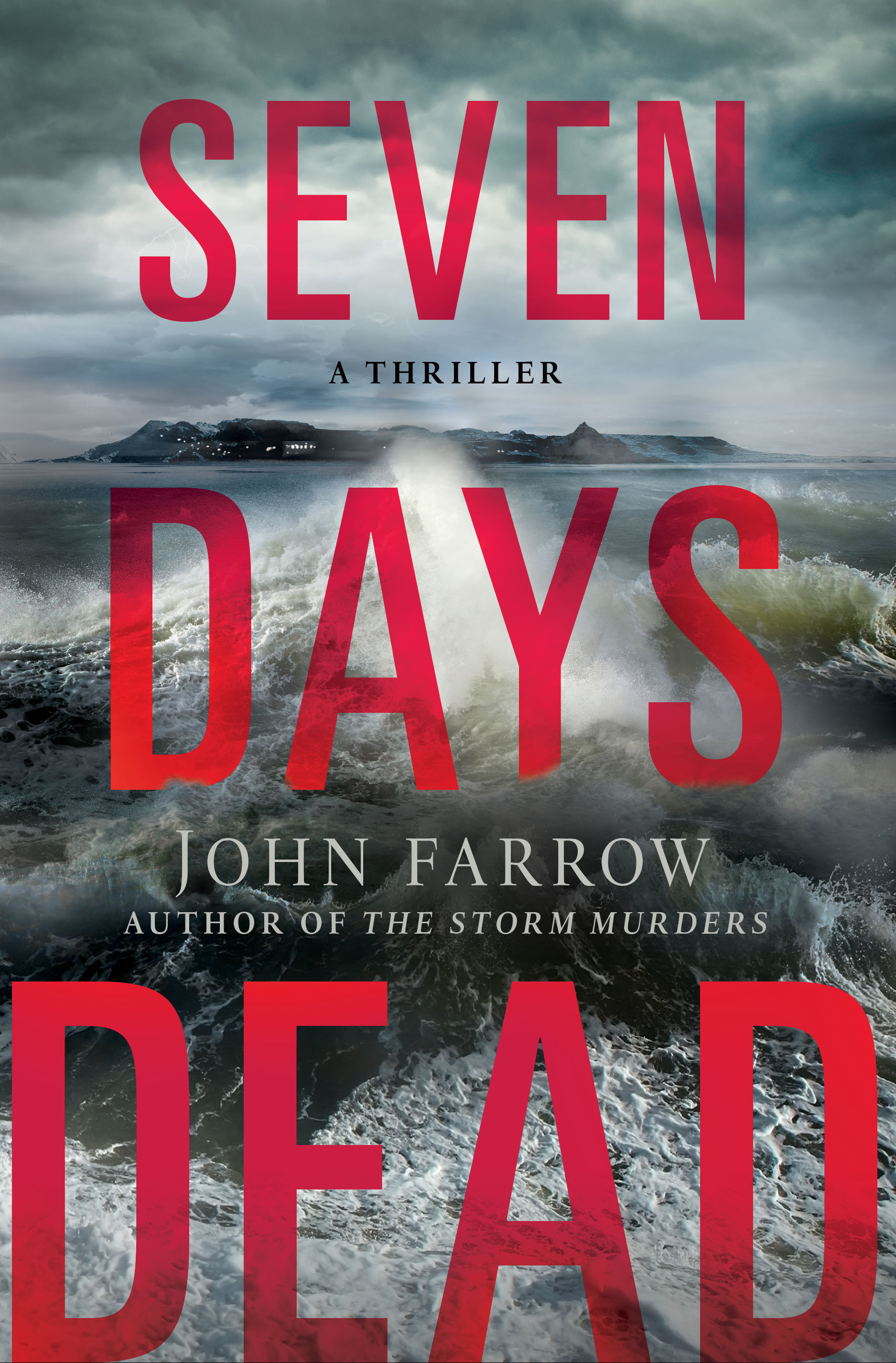 John Farrow is the Canadian author of five thrillers; and another seven novels and four plays under his real name, Trevor Ferguson. Seven Days Dead, the second in The Storm Murders Trilogy, has received a starred review in Booklist, while a great review in the New York Times (Marilyn Stasio) is forthcoming on June 12th. The Detective Émile Cinq-Mars series has been called the best of our time by Booklist, the best of all time by Die Zeit in Germany.
John Farrow is the Canadian author of five thrillers; and another seven novels and four plays under his real name, Trevor Ferguson. Seven Days Dead, the second in The Storm Murders Trilogy, has received a starred review in Booklist, while a great review in the New York Times (Marilyn Stasio) is forthcoming on June 12th. The Detective Émile Cinq-Mars series has been called the best of our time by Booklist, the best of all time by Die Zeit in Germany.
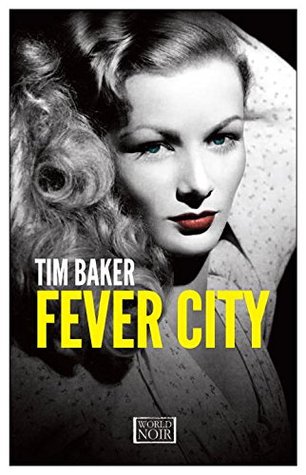 Tim Baker’s debut noir thriller, FEVER CITY (Europa Editions & Faber), has just been longlisted for a CWA Dagger award. Other longlisted writers this year include Stephen King, Don Winslow and Lee Child. Prior to publishing FEVER CITY, Tim liaised with international authorities on cases involving murder, kidnap, terrorism and disappearances in North Africa and Europe. He currently lives in the South of France with his wife and son. Twitter: @TimBakerWrites
Tim Baker’s debut noir thriller, FEVER CITY (Europa Editions & Faber), has just been longlisted for a CWA Dagger award. Other longlisted writers this year include Stephen King, Don Winslow and Lee Child. Prior to publishing FEVER CITY, Tim liaised with international authorities on cases involving murder, kidnap, terrorism and disappearances in North Africa and Europe. He currently lives in the South of France with his wife and son. Twitter: @TimBakerWrites
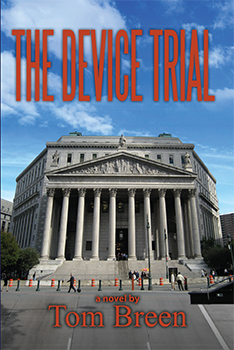 Tom Breen has practiced law over twenty five years and is currently a partner in a law firm in downtown New York. Tom’s litigation experience has enabled him to realistically create courtroom and deposition scenes with tense dialogue and interesting characters that simulates actual courtroom dynamics. He lives with his wife on Long Island and their two daughters are practicing attorneys living in New York City.
Tom Breen has practiced law over twenty five years and is currently a partner in a law firm in downtown New York. Tom’s litigation experience has enabled him to realistically create courtroom and deposition scenes with tense dialogue and interesting characters that simulates actual courtroom dynamics. He lives with his wife on Long Island and their two daughters are practicing attorneys living in New York City.
 Mark Adduci, writing as J. M. LeDuc, shares his love and life with his wife, Sherri and his daughter, Chelsea. Blessed to have had a mother who loved the written word, her passion was passed on to him. It is in her maiden name he writes. J.M. LeDuc’s first novel, “Cursed Blessing,” won a Royal Palm Literary Award in 2008 as an unpublished manuscript in the thriller category and was published in 2010. The rest of the Trilogy of the Chosen: “Cursed Presence” and “Cursed Days” followed in 2012, as well as a novella, “Phantom Squad”—a prequel to the trilogy. “Cornerstone,” the continuation of the Phantom Squad series was published in 2013 to critical acclaim. Two years after its original publication, “Cornerstone” became a # 1 Best Seller on Amazon in November or 2015. “Sin,” the first book in the Sinclair O’Malley series was published in May of 2014. “Painted Beauty,” the second in the series, followed in May of 2016.
Mark Adduci, writing as J. M. LeDuc, shares his love and life with his wife, Sherri and his daughter, Chelsea. Blessed to have had a mother who loved the written word, her passion was passed on to him. It is in her maiden name he writes. J.M. LeDuc’s first novel, “Cursed Blessing,” won a Royal Palm Literary Award in 2008 as an unpublished manuscript in the thriller category and was published in 2010. The rest of the Trilogy of the Chosen: “Cursed Presence” and “Cursed Days” followed in 2012, as well as a novella, “Phantom Squad”—a prequel to the trilogy. “Cornerstone,” the continuation of the Phantom Squad series was published in 2013 to critical acclaim. Two years after its original publication, “Cornerstone” became a # 1 Best Seller on Amazon in November or 2015. “Sin,” the first book in the Sinclair O’Malley series was published in May of 2014. “Painted Beauty,” the second in the series, followed in May of 2016.
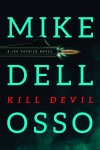 Mike Dellosso is the author of several novels of suspense, an adjunct professor of creative writing and popular conference teacher, a husband, and a father. Born in Baltimore, Mike now resides in southern Pennsylvania with his wife and four daughters. KILL DEVIL is a Jed Patrick novel.
Mike Dellosso is the author of several novels of suspense, an adjunct professor of creative writing and popular conference teacher, a husband, and a father. Born in Baltimore, Mike now resides in southern Pennsylvania with his wife and four daughters. KILL DEVIL is a Jed Patrick novel.
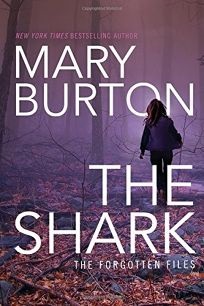 New York Times and USA Today bestselling suspense author Mary Burton’s writing has been compared to the works of James Patterson, Lisa Gardner, Lisa Jackson and Steig Larson. Her new novel, THE SHARK, the first of her Forgotten File novels, debuts May 24th, following the success of her recent books Vulnerable, I’ll Never Let You Go, Cover Your Eyes and Be Afraid. Mary is the author of twenty-nine published novels and five novellas. In addition to her “Morgan Family” books, Mary’s other “connected” stories include The Seventh Victim, No Escape and You’re Not Safe, featuring investigators from the Texas Rangers and Senseless, Merciless and Before She Dies, all set in Alexandria, Virginia. Her short story, The Keepsake, is featured along with those by Jeffrey Deaver, Anne Perry and others in the recently published anthology Killer Nashville Noir: Cold Blooded.
New York Times and USA Today bestselling suspense author Mary Burton’s writing has been compared to the works of James Patterson, Lisa Gardner, Lisa Jackson and Steig Larson. Her new novel, THE SHARK, the first of her Forgotten File novels, debuts May 24th, following the success of her recent books Vulnerable, I’ll Never Let You Go, Cover Your Eyes and Be Afraid. Mary is the author of twenty-nine published novels and five novellas. In addition to her “Morgan Family” books, Mary’s other “connected” stories include The Seventh Victim, No Escape and You’re Not Safe, featuring investigators from the Texas Rangers and Senseless, Merciless and Before She Dies, all set in Alexandria, Virginia. Her short story, The Keepsake, is featured along with those by Jeffrey Deaver, Anne Perry and others in the recently published anthology Killer Nashville Noir: Cold Blooded.
 Camille Minichino (aka Margaret Grace, Ada Madison, and Jean Flowers) has written more than 20 mystery novels as well as short stories and articles. Latest release: DEATH TAKES PRIORITY, November 2015. A retired physicist, she’s married to her webmaster, loves writing, but misses her helium-neon laser.
Camille Minichino (aka Margaret Grace, Ada Madison, and Jean Flowers) has written more than 20 mystery novels as well as short stories and articles. Latest release: DEATH TAKES PRIORITY, November 2015. A retired physicist, she’s married to her webmaster, loves writing, but misses her helium-neon laser.
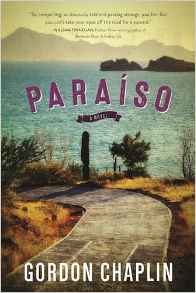 Gordon Chaplin is the author of the novel Joyride and several works of nonfiction, including Dark Wind: A Survivor’s Tale of Love and Loss and Full Fathom Five: Ocean Warming and a Father’s Legacy. A former journalist for Newsweek, the Baltimore Sun, and the Washington Post, he has worked on sea conservation with the group Niparaja and since 2003 has been a research associate at the Academy of Natural Sciences in Philadelphia. He lives with his wife and daughter in New York City and Hebron, New York.
Gordon Chaplin is the author of the novel Joyride and several works of nonfiction, including Dark Wind: A Survivor’s Tale of Love and Loss and Full Fathom Five: Ocean Warming and a Father’s Legacy. A former journalist for Newsweek, the Baltimore Sun, and the Washington Post, he has worked on sea conservation with the group Niparaja and since 2003 has been a research associate at the Academy of Natural Sciences in Philadelphia. He lives with his wife and daughter in New York City and Hebron, New York.
- LAST GIRL MISSING with K.L. Murphy - July 25, 2024
- CHILD OF DUST with Yigal Zur - July 25, 2024
- THE RAVENWOOD CONSPIRACY with Michael Siverling - July 19, 2024
